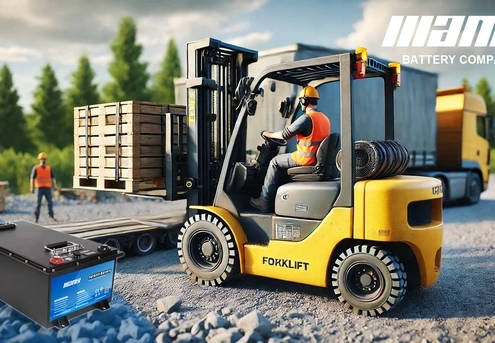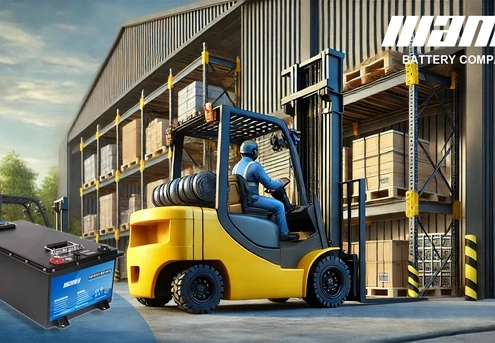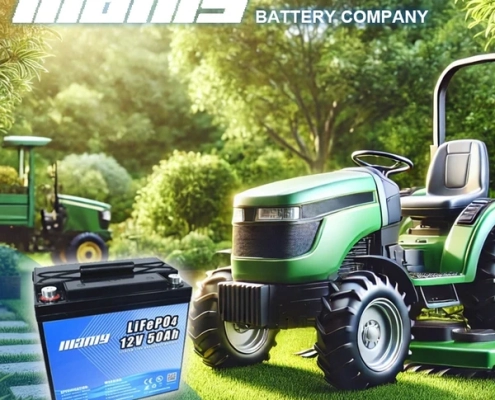Top 12 Solid State Battery Companies Shaping the Future
Sommario
- Top 12 Solid State Battery Companies Shaping the Future
The race to develop next-generation solid state batteries is intensifying, with multiple Solid State Battery Companies making significant advancements. Unlike traditional lithium-ion batteries, solid state batteries use solid electrolytes, which offer enhanced safety, higher energy density, and faster charging capabilities. These features have attracted the attention of major companies, leading to a surge in research and development efforts. The following sections provide an in-depth look at some of the top Solid State Battery Companies, their unique approaches, and their development timelines, highlighting the potential impact of their innovations on the energy storage industry.
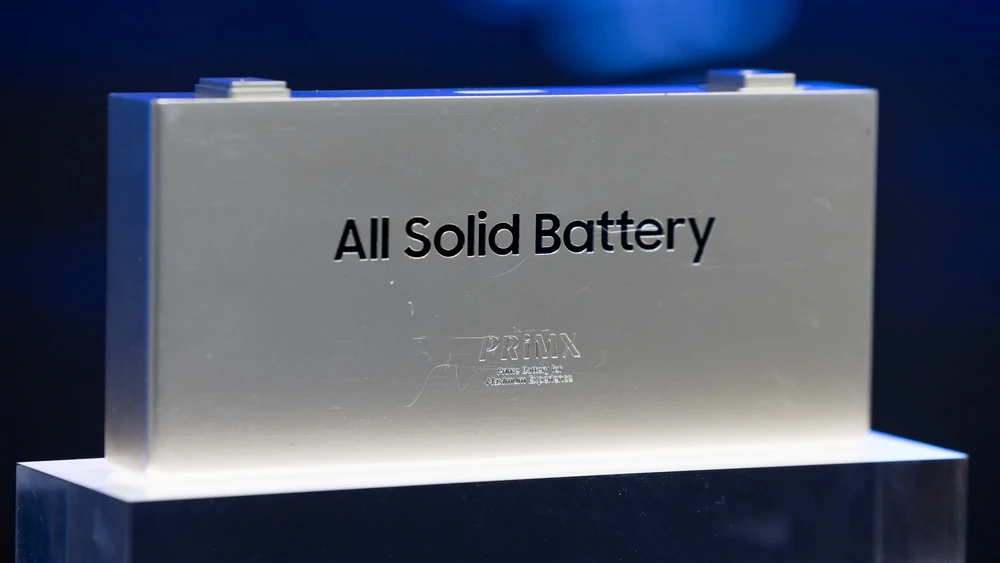
Cos'è una batteria a stato solido?
A solid state battery is a new technology that uses solid electrodes and a solid electrolyte, unlike conventional lithium-ion batteries that rely on liquid or gel-based electrolytes. The primary difference lies in the materials used for energy transfer. Traditional batteries typically use a fluid electrolyte, which can cause safety concerns like overheating or even explosions under extreme conditions. In contrast, solid state battery materials are usually made from ceramics, glass, or polymers, which are far more stable and safer.
La batteria a stato solido utilizza questi materiali solidi per condurre ioni tra gli elettrodi, sostituendo la soluzione liquida presente nei progetti di batterie più vecchi. Questa differenza nella costruzione migliora significativamente la sicurezza, poiché i materiali solidi non sono infiammabili e possono resistere a temperature molto più elevate senza rompersi. Di conseguenza, i materiali a batteria a stato solido rendono la tecnologia più affidabile, riducendo il rischio di perdite, incendi o reazioni chimiche.
Un altro aspetto chiave di una batteria a stato solido è la sua capacità di utilizzare il metallo di litio come anodo anziché grafite. Questo cambiamento aumenta la densità di energia, consentendo alla batteria di archiviare più energia delle stesse dimensioni o peso. Ciò è particolarmente vantaggioso per i veicoli elettrici (EV) e l'elettronica portatile che richiedono fonti di alimentazione compatte ad alta capacità. Utilizzando materiali a batteria a stato solido avanzato, i produttori possono creare batterie non solo più sicure ma anche più leggere e più lunghe rispetto alle opzioni tradizionali.
Nel complesso, una batteria a stato solido è vista come una promettente sostituzione delle attuali batterie agli ioni di litio a causa della sua maggiore sicurezza, durata della vita più lunga e maggiore densità di energia. Man mano che questa tecnologia avanza, potrebbe portare a una rivoluzione nel modo in cui le batterie vengono utilizzate in vari settori, dai veicoli elettrici ai sistemi di accumulo di energia rinnovabile.
Vantaggi delle batterie a stato solido
The benefits of solid state batteries make them a strong contender as a replacement for lithium batteries in many applications. Their advantages over traditional lithium-ion batteries include enhanced safety, improved energy density, and rapid charging capabilities, making them highly attractive for industries that demand reliable, long-lasting power solutions.
Funzionalità di sicurezza migliorate
One of the key benefits of solid state batteries is their significantly improved safety profile. Traditional lithium-ion batteries use liquid electrolytes, prone to overheating, leaking, or even catching fire under certain conditions. However, solid state batteries replace these with stable, non-flammable materials like ceramics or polymers, reducing the risk of thermal runaway and making them safer for use in high-stress environments such as electric vehicles and industrial equipment. Solid electrolytes are more resistant to degradation over time, which means a lower chance of failure even after extended use.
Monitoraggio della densità di energia migliorata
Another crucial benefit of solid state batteries is their higher energy density. By utilizing solid state battery materials like lithium metal as the anode, solid state batteries can store more energy per unit of volume or weight than traditional batteries. This feature is especially important for applications where space and weight are at a premium, such as electric vehicles and portable electronics. A solid state battery can double or triple the energy density of a conventional lithium-ion battery, offering more range for EVs or longer usage times for electronic devices. Additionally, the solid electrolytes in these batteries enable better energy density monitoring, allowing for more precise control over the battery’s charge and discharge cycles.
Funzionalità di ricarica rapida
Le batterie a stato solido sono anche note per le loro rapide abilità di ricarica, un vantaggio chiave rispetto alle batterie al litio convenzionali. A causa della loro struttura unica e delle proprietà dei materiali a batteria a stato solido, queste batterie possono supportare un movimento di ioni più rapido, riducendo il tempo necessario per caricare completamente. Mentre le batterie tradizionali possono richiedere ore per raggiungere una carica completa, le batterie a stato solido possono ottenere lo stesso in una frazione del tempo, rendendole una sostituzione ideale per le batterie al litio nelle applicazioni in cui la ricarica rapida è fondamentale, come veicoli elettrici o sistemi di backup di emergenza .
La combinazione di una maggiore sicurezza, una maggiore densità di energia e capacità di ricarica rapida posiziona batterie a stato solido come la prossima evoluzione nella tecnologia delle batterie. Mentre i produttori continuano a perfezionare questa tecnologia, ha il potenziale per servire da sostituzione superiore per le batterie al litio in vari settori.
Sfide per accelerare lo sviluppo della batteria a stato solido
Although solid state batteries have shown significant potential as the future of energy storage, multiple obstacles remain. These challenges hinder the speeding up of solid state battery development and achieving large-scale commercialization. The issues range from competition with other technologies to the complexities of the production process. Let’s look at some of the key challenges researchers and manufacturers face.
Tecnologie alternative disponibili
One of the most significant barriers to speeding up solid state battery adoption is the presence of other competing technologies. Current lithium-ion batteries, for example, have a well-established supply chain, lower costs, and are widely used in many applications. As a result, traditional lithium-ion batteries still dominate the market due to their affordability and proven performance. Besides lithium-ion, other emerging technologies, such as sodium-ion and lithium-sulfur batteries, offer different benefits. These alternatives make it harder for companies to justify the high investment needed to develop solid state batteries.
With more options available, many manufacturers hesitate to commit to solid state technology fully. They are weighing the benefits of solid state batteries against the potential of other systems. Until the cost, safety, and energy density of solid state batteries can be proven to significantly outperform existing options, the adoption process will remain slow. This means speeding up development will require a stronger focus on research and proving the unique value of solid-state systems over other battery technologies.
Tecniche di produzione complesse
Un'altra grande sfida nell'accelerare lo sviluppo della batteria a stato solido è il complesso processo di produzione. Le batterie tradizionali agli ioni di litio hanno un processo di produzione aerodinamico che è stato ottimizzato nel corso di decenni. Al contrario, le batterie a stato solido utilizzano un set completamente diverso di materiali a batteria a stato solido, come ceramica o vetro, che sono più difficili da maneggiare e più costosi da produrre. La struttura delicata di questi materiali rende difficile mantenere standard di alta qualità durante la produzione, portando a bassi rendimenti e costi elevati.
Additionally, achieving a uniform and stable interface between the solid electrolyte and the electrodes is crucial. Any defects can cause the battery to malfunction or degrade quickly. This requirement for precise manufacturing means that scaling up production is not as simple as for conventional batteries. Current methods for creating solid state batteries often involve high temperatures and pressures, which are costly and time-consuming. As a result, speeding up production would require new techniques and innovations that can lower costs and reduce the time needed to manufacture these advanced batteries.
Inoltre, le batterie a stato solido richiedono attrezzature specializzate che non sono ampiamente disponibili, rendendo difficile per le aziende più piccole entrare nel mercato. Ciò si traduce in una significativa barriera di investimento per i nuovi giocatori, rallentando i progressi complessivi. Per rendere le batterie a stato solido un prodotto commerciale praticabile, l'industria necessita di scoperte sia nei materiali che nei processi di produzione per semplificare la produzione e ridurre i costi.
Cronologia della batteria a stato solido
La cronologia della batteria a stato solido mostra come questa promettente tecnologia si sia evoluta dalle fasi iniziali di ricerca alla sua produzione di massa prevista. Nonostante i suoi potenziali benefici per le batterie convenzionali agli ioni di litio, il percorso verso l'uso commerciale su larga scala è stato lungo e impegnativo. Ecco uno sguardo più attento alla sequenza temporale di sviluppo e alle pietre miliari chiave per le batterie a stato solido.
Ricerca e sviluppo precoci (anni '70 - 2000)
Il concetto di batterie a stato solido è stato introdotto per la prima volta negli anni '70, quando i ricercatori hanno iniziato a sperimentare materiali a batteria a stato solido come ceramica e polimeri per sostituire gli elettroliti liquidi utilizzati nelle batterie tradizionali. Durante questo periodo, l'attenzione era rivolta principalmente al miglioramento della densità di energia e della sicurezza. Tuttavia, a causa delle limitazioni tecniche e degli alti costi di produzione, le batterie a stato solido sono rimaste in gran parte limitate agli esperimenti di laboratorio.
Bregge tecnologiche e prototipi (2010-2019)
In the early 2010s, interest in solid-state technology gained momentum as several companies, including Toyota and Samsung SDI, began investing heavily in research and development. They explored various solid state battery materials and made significant advancements in the composition of solid electrolytes. By 2017, Toyota and other key players had successfully developed the first solid-state prototypes, proving that these batteries could be used in real-world applications. This period marked a turning point in the Solid State Battery Timeline, demonstrating the potential for safer, more efficient energy storage solutions.
Produzione pilota e commercializzazione iniziale (2020-2025)
Gli anni '20 hanno visto rapidi progressi nella commercializzazione di batterie a stato solido. Aziende come Quantumscape e Solid Power si sono spostate dalla ricerca di laboratorio alla produzione pilota, con l'obiettivo di portare i loro prodotti sul mercato. Queste aziende hanno collaborato con le principali case automobilistiche come Volkswagen e Ford, concentrandosi sull'uso di batterie a stato solido nei veicoli elettrici (EV). Entro il 2025, molti produttori prevedono di rilasciare i loro modelli di batterie a stato solido di prima generazione per EV, mirando a intervalli di guida più lunghi e tempi di ricarica più veloci.
Produzione di massa ed espansione del mercato (2026-2030)
The Solid State Battery Timeline suggests that mass production will begin around 2026, as several leading companies, such as CATL and BYD, have announced plans to launch large-scale production lines. By this time, technological barriers related to solid state battery materials and manufacturing techniques are expected to be resolved, making these batteries more cost-competitive with traditional lithium-ion batteries. This period will also see broader adoption in consumer electronics, energy storage systems, and potentially aviation.
Future Developments (2030 e oltre)
Looking further ahead, the focus will be on optimizing the performance and cost of solid state batteries. As production scales up and the technology matures, solid state batteries are expected to replace conventional lithium-ion batteries in various applications. This transition will likely reshape the energy storage landscape, providing safer, more efficient power solutions for industries worldwide.
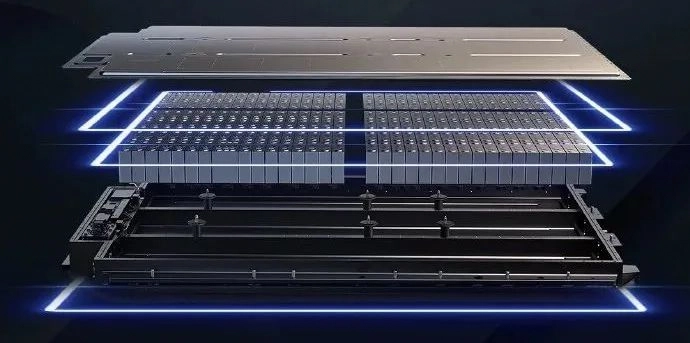
12 Best Solid State Battery Companies
L'ascesa delle compagnie di batterie a stato solido sta rimodellando il settore dello stoccaggio di energia, spingendo i confini di ciò che la tecnologia tradizionale agli ioni di litio può raggiungere. Una batteria a stato solido utilizza elettroliti solidi invece di quelli liquidi, offrendo una maggiore sicurezza, una maggiore densità di energia e tempi di ricarica più veloci. Questi benefici hanno catturato l'attenzione dei principali attori come Catl, BYD e Quantumscape, ciascuno che si sforza di guidare questa evoluzione tecnologica. Mentre queste compagnie aprono la strada da percorrere, Manly Battery si sta anche preparando per questa trasformazione. Mentre continuiamo a sviluppare batterie al litio all'avanguardia, rimani in contatto per le nostre future innovazioni a stato solido!
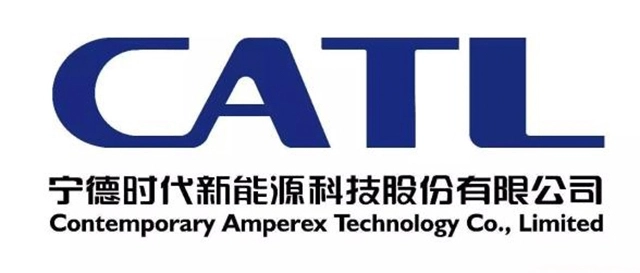
CATL
Panoramica
CATL (contemporaneo Amperex Technology Co., Limited) è leader globale nella produzione di batterie e uno dei giocatori più influenti nelsolidostate battery market. The company recently unveiled its “condensed state battery” technology, which integrates liquid and solid electrolyte features to offer a hybrid solution. This innovative design achieves an energy density of up to 500 Wh/kg, positioning it as one of the most advanced solid state battery technologies currently under development. CATL focuses on enhancing energy density and safety—two critical factors that traditional lithium-ion batteries often struggle to balance.
Cronologia di sviluppo
- 2023: Catl ha introdotto la sua batteria statale condensata, segnando una pietra miliare significativa nella ricerca a stato solido dell'azienda. La nuova tecnologia a batteria utilizza un elettrolita solido a base di zolfo, che offre un'elevata conducibilità ionica e stabilità, rendendolo ideale per ottenere densità di energia più elevate mantenendo la sicurezza.
- 2024: CATL’s chief scientist, Wu Kai, announced that the company’s solid state battery technology is currently at a “4 out of 9” maturity level. This scale measures the progress toward full commercialization, with 9 representing readiness for large-scale production. The company set a target to reach a maturity level of “7 or 8” by 2027, enabling small-scale production and establishing CATL as a leader in the solid-state sector.
- 2027: CATL aims to achieve a significant milestone by starting small-scale production of its solid state batteries. This achievement will position CATL as a frontrunner in the industry, paving the way for broader commercialization. The company plans to integrate its solid-state technology into various applications, including electric vehicles (EVs) and energy storage systems.
- 2030 e oltre: Entro il 2030, CATL prevede di aver commercializzato completamente la sua tecnologia a batteria a stato solido, soddisfacendo la crescente domanda di soluzioni di stoccaggio di energia più sicure ed efficienti. La strategia a lungo termine dell'azienda include l'espansione delle sue offerte di batterie a stato solido per supportare una varietà di applicazioni, dai veicoli elettrici ad alte prestazioni ai sistemi di accumulo di energia industriale.

BYD
Panoramica
BYD, another prominent player among Solid State Battery Companies, has made significant strides in developing its own solid state battery technology. Although BYD has not yet introduced a commercial solid-state product, it has pursued a unique design combining a high-nickel ternary (single crystal) cathode, a silicon-based anode, and a sulfur-based electrolyte. This advanced configuration is expected to yield energy densities exceeding 280 Wh/kg, making BYD a strong competitor in the high-performance battery market.
Cronologia di sviluppo
- 2018 – 2022: BYD laid the groundwork for its solid state battery research by investing heavily in material science and establishing partnerships with top research institutions. During this period, the company refined its electrolyte and electrode compositions to enhance energy density and safety.
- 2023: The company officially announced its intention to commercialize solid state batteries and began prototyping its first solid-state cells. BYD’s initial designs showed promising results, surpassing conventional lithium-ion batteries’ energy densities.
- 2027: BYD’s first significant milestone is the planned launch of small-scale solid state battery production. The company will initially focus on integrating these batteries into its high-end vehicle models to validate performance and safety in real-world conditions.
- 2030: By 2030, BYD aims to equip around 40,000 vehicles with its solid state battery technology. The company plans to expand production capacity to support the growing demand for solid-state batteries in electric vehicles and other applications.
- 2033 e oltre: L'obiettivo a lungo termine di BYD è quello di avere 120.000 veicoli che utilizzano la sua tecnologia a stato solido entro il 2033. Questa sequenza temporale sottolinea l'impegno dell'azienda a diventare leader tra le compagnie di batterie a stato solido. I progetti a stato solido di BYD mirano a ridurre il rischio di fuga termica, un problema comune nelle tradizionali batterie agli ioni di litio, utilizzando materiali che offrono una migliore gestione e stabilità termica.
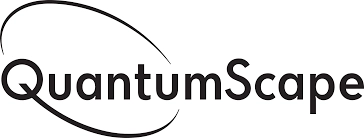
QuantumScape
Panoramica
Quantumscape, una startup con sede in California fondata nel 2010, è rapidamente aumentata nel settore delle batterie a stato solido. La società si concentra sullo sviluppo di batterie in metallo di litio a stato solido appositamente progettati per veicoli elettrici (EV). Ciò che distingue Quantumscape da altre società di batterie a stato solido è la sua innovativa architettura "senza anodi", che elimina la necessità di anodi tradizionali di grafite. Invece, l'azienda utilizza il metallo di litio come anodo, abbinato al suo separatore di ceramica a stato solido proprietario. Questo design unico migliora significativamente la densità di energia, la sicurezza e le velocità di ricarica, rendendo le batterie di Quantumscape un potenziale punto di svolta per il mercato dei veicoli elettrici.
Cronologia di sviluppo
- 2010: QuantumScape was established by Stanford University scientists, including Jagdeep Singh, Fritz Prinz, and Tim Holme. The company initially aimed to develop a safer, higher-capacity battery that could outperform existing lithium-ion technology.
- 2018: Volkswagen Group invested $100 million in QuantumScape to accelerate the development of solid state battery technology. This partnership aimed to integrate QuantumScape’s batteries into Volkswagen’s future EV models, allowing the automaker to offer longer ranges and faster charging times.
- 2020: QuantumScape went public, attracting more investors and gaining further financial support for its research and development. This milestone allowed the company to ramp its efforts and produce early-stage prototypes.
- 2022: Quantumscape ha consegnato il suo primo prototipo a 24 strati di batteria in metallo al litio a diversi importanti produttori di apparecchiature originali automobilistiche (OEM) per i test. Queste cellule hanno dimostrato un'elevata densità di energia e capacità di ricarica rapida, convalidando l'approccio di progettazione unico dell'azienda. Quantumscape ha anche collaborato con Fluence per esplorare l'uso delle sue batterie a stato solido nei sistemi di accumulo di energia stazionaria, ampliando le sue potenziali applicazioni oltre il settore automobilistico.
- 2023: La società ha annunciato risultati di test di successo per le sue batterie di campionamento A0, ottenendo un'elevata capacità di elettrodo positivo di 3,1 mAh/cm². Sotto il 100% di profondità di scarico (DOD) e C/3 Condizioni di scarica C/2, le cellule A0 hanno mantenuto la conservazione della capacità del 95% dopo 1.000 cicli. Questi risultati hanno mostrato che la tecnologia a stato solido di Quantumscape si stava avvicinando ai livelli di prestazione paragonabili alle batterie agli ioni di litio liquidi ad alto contenuto di nichel, segnando un progresso significativo sul campo.
- 2024: Quantumscape ha iniziato a fornire i suoi prototipi Alpha-2 per selezionare i clienti per ulteriori test e integrazione in piattaforme EV. Questa fase consentirà all'azienda di perfezionare la sua tecnologia in base ai dati del mondo reale e di prepararsi per la produzione su vasta scala.
- 2027 – 2030: Quantumscape prevede la produzione su larga scala delle sue batterie a stato solido entro il 2030. Questa sequenza temporale riflette l'attenzione strategica dell'azienda sull'affrontare le restanti sfide tecniche, come il miglioramento della scalabilità della produzione e la garanzia della durata a lungo termine.
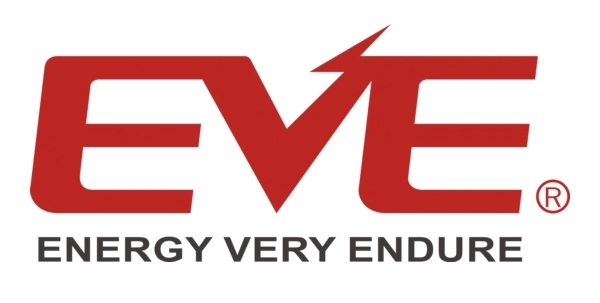
EVE Energia Co., Ltd. (EVE)
Panoramica
EVE Energy Co., Ltd. (EVE), founded in 2001, is a leading Chinese solid state battery manufacturer known for focusing on high-power and high-durability battery solutions. EVE has been actively developing solid-state technology using sulfide and halide-based solid electrolytes to enhance the performance and safety of its batteries. The company’s strategy involves a phased approach, starting with semi-solid batteries and gradually transitioning to fully solid-state designs. With its advanced materials and strong research capabilities, EVE aims to dominate the solid state battery market.
Cronologia di sviluppo
- 2017: EVE officially launched its solid state battery research program, focusing on developing sulfide-based solid electrolytes. This early-stage research addressed key technical challenges, such as optimizing electrolyte composition and improving the interface stability between the solid electrolyte and electrode materials.
- 2022: Eva ha fatto progressi significativi nello sviluppo semi-solido della batteria, producendo con successo celle prototipo con una densità di energia di 330 WH/kg e una durata del ciclo di oltre 2.000 cicli. Questo design semi-solido è stato una tecnologia di transizione, consentendo a Eva di perfezionare i suoi processi e prepararsi per l'eventuale lancio di batterie a stato completamente solido.
- 2023: Alla prima conferenza annuale della batteria al litio, Eva ha presentato la sua tabella di marcia per lo sviluppo della batteria a stato solido. La società ha annunciato che avrebbe perseguito una strategia in due fasi: raggiungere le scoperte nelle tecniche di produzione entro il 2026 e lanciare un modello di batteria a stato solido ad alta potenza e ad alta ambientale per veicoli elettrici ibridi (HEV). Questo modello iniziale si concentrerà sulla fornitura di una maggiore sicurezza e una potenza migliore per applicazioni esigenti.
- 2025: EVE plans to complete the development of its second-generation semi-solid battery with an energy density of 400 Wh/kg. The company aims to begin vehicle integration testing by year-end to gather performance data and refine its designs.
- 2026: EVE expects to achieve a significant milestone by launching its first high-power solid state battery for HEVs. This model will serve as a stepping stone toward developing high-energy-density batteries suitable for full electric vehicles (EVs).
- 2028: Eva mira a introdurre una batteria a stato completamente solido con una densità di energia di 400 WH/kg. Questo prodotto rappresenterà il culmine dei suoi sforzi di ricerca e sviluppo e sarà preso di mira in una serie di applicazioni, tra cui EV di fascia alta e archiviazione a griglia.
- 2030 e oltre: Entro il 2030, Eva prevede di aumentare la produzione e affermarsi come un importante fornitore di batterie a stato solido nei mercati nazionali e internazionali. La strategia a lungo termine dell'azienda include l'aumento della densità e della sicurezza della sua gamma di batterie a stato solido, riducendo al contempo i costi per rendere queste batterie più accessibili.

SamsungSDI
Panoramica
Samsung SDI, a subsidiary of Samsung Group, began its journey in solid state battery development in 2013. The company focuses on creating high-performance, safe batteries using advanced materials like high-nickel cathodes and sulfide-based electrolytes. By leveraging its expertise in battery manufacturing and cutting-edge research facilities, Samsung SDI aims to produce batteries that can outperform conventional lithium-ion batteries in energy density, safety, and lifespan.
Cronologia di sviluppo
- 2013: Samsung SDI began its initial solid state battery technology research. The goal was to address some key limitations of existing lithium-ion batteries, such as safety risks and energy density constraints.
- 2018: The company intensified its efforts by investing heavily in solid-state research projects. During this time, Samsung SDI also began collaborating with other South Korean battery manufacturers, such as LG Chem and SK Innovation, to advance the development of high-energy-density cells.
- 2020: Samsung SDI achieved a significant breakthrough by developing a prototype solid state battery with an energy density of over 400 Wh/kg. This battery demonstrated a potential single-charge driving range of over 800 kilometers, making it a viable option for electric vehicles (EVs) looking to extend their range. The prototype had a cycle life of over 1,000 cycles, setting a new benchmark for performance in the solid-state field.
- 2023: Samsung SDI established its first solid-state pilot production line (the S-Line) at its research facility in Suwon, South Korea. In June, the company produced its first samples of sulfide-based solid state batteries, marking the start of pre-commercial production. By August, Samsung SDI announced plans to expand its Ulsan plant to accommodate new production lines for LFP (Lithium Iron Phosphate) and solid state batteries, to double the plant’s capacity.
- 2025: Samsung SDI mira a finalizzare la sua tecnologia di produzione su larga scala per batterie a stato solido. La società prevede di sviluppare batterie a stato solido ad alta capacità che possono essere prodotte su larga scala, rendendolo pronto per l'adozione del mercato di massa.
- 2027: Full-scale mass production of solid state batteries will begin at the newly expanded Ulsan facility. The company expects to achieve an energy density of 900 Wh/L, making these batteries ideal for various applications, from high-performance EVs to industrial energy storage systems.
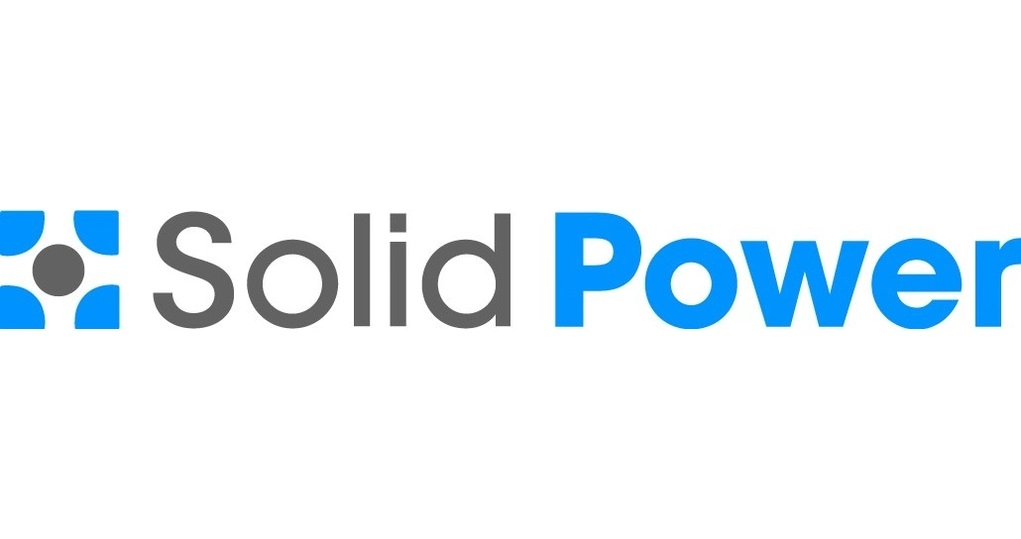
Potere solido
Panoramica
Solid Power, founded in 2011 as a spin-off from the University of Colorado, focuses exclusively on developing high-performance solid state battery cells and materials. The company has carved out a unique niche by using sulfide-based solid electrolytes, which are known for their high ionic conductivity and safety. Solid Power’s goal is to create solid state batteries that can be manufactured using existing lithium-ion production lines, making them easier and more cost-effective to scale up.
Cronologia di sviluppo
- 2011: Solid Power was established by a group of scientists at the University of Colorado. The company started by exploring novel solid-state materials and designs that could outperform traditional lithium-ion batteries. Initially, Solid Power received support from the U.S. Air Force and the National Science Foundation to develop its core technology.
- 2017: Solid Power entered its first significant partnership agreement with BMW. This collaboration allowed the company to accelerate its development of solid state battery prototypes for the automotive market.
- 2018: La società ha ampliato il suo focus di ricerca introducendo un secondo prodotto di base: una batteria a stato solido ad alta densità di energia utilizzando una combinazione unica di catodi NCM (nichel cobalt manganese) e anodi a base di silicio. Questo sviluppo ha attirato l'interesse di altre case automobilistiche, tra cui l'innovazione Ford e SK.
- 2022: Solid Power installed its pilot production line for sulfide-based solid state batteries. With an annual capacity of 15,000 battery cells, this facility enabled the company to produce its first prototype cells for testing and further optimization. During this year, Solid Power also began working closely with BMW and Ford to integrate its battery technology into their electric vehicle platforms.
- 2023: In November, Solid Power announced that it had produced its first batch of A-sample solid state batteries, which were delivered to BMW for initial testing and automotive qualification. This milestone marked the company’s entry into the vehicle certification phase, with plans to use these batteries in BMW’s demonstration projects. Additionally, BMW received a license to develop Solid Power’s solid state batteries at its facilities, further deepening the partnership.
- 2025: Solid Power aims to start large-scale production of solid state battery prototypes, focusing on improving energy density and extending cycle life. This phase will also involve optimizing the integration of its solid-state cells into various automotive platforms.
- 2026: La società prevede di aumentare la produzione per fornire le sue batterie a stato solido per uso commerciale in veicoli ibridi ed elettrici. Entro il 2026, le capacità di produzione di Solid Power saranno ampliate in modo significativo per soddisfare la crescente domanda dei suoi partner.
- 2030: Solid Power expects to reach full-scale mass production by 2030, with an energy density target of 560 Wh/kg. This level of performance would place Solid Power’s solid state batteries among the highest-energy-density solutions available, making them a strong competitor in the EV and energy storage markets.

Soluzione energetica LG
Panoramica
LG Energy Solution, a subsidiary of LG Chem, is one of the top global battery manufacturers. The company strongly focuses on lithium-ion and solid-state battery technologies and is well-known for its high-quality batteries used in electric vehicles (EVs) and energy storage systems. Recently, LG Energy Solution has been making significant strides in solid-state battery development, particularly in the semi-solid and fully solid-state sectors.
Cronologia di sviluppo
- 2013: LG Energy Solution ha iniziato la sua ricerca iniziale sulla tecnologia a stato solido, esplorando diverse composizioni di materiali e tecniche di produzione per migliorare la sicurezza e le prestazioni della batteria.
- 2023: In September, LG Energy Solution announced constructing a semi-solid battery production line at its Ochang Energy Plant, targeting commercial production by 2026. This new facility will focus on semi-solid batteries with an energy density of around 650 Wh/L, providing higher energy output than traditional lithium-ion batteries. At the World Power Battery Conference in 2023, LG Energy Solution revealed its plan first to commercialize semi-solid batteries and later transition to full solid-state technology.
- 2024: Alla mostra "Inter Battery 2024", LG Energy Solution ha evidenziato i suoi sforzi per sviluppare le batterie al litio-zolfo come tecnologia di prossima generazione. L'azienda mira a iniziare la produzione di massa di queste batterie entro il 2027. Allo stesso tempo, LG Energy Solution sta lavorando su due percorsi a batteria a stato solido: una batteria a stato solido polimerico e una batteria a stato solido a base di solfuro. Questa doppia strategia consente all'azienda di soddisfare le varie esigenze di mercato e garantire un'applicazione più ampia dei suoi prodotti a stato solido.
- 2026: LG Energy Solution plans to achieve commercial-scale production of its semi-solid batteries. The company is focusing on optimizing silicon or lithium metal anodes to boost energy density further, making these batteries more suitable for EVs and high-performance applications.
- 2028: LG Energy Solution mira a lanciare una batteria a stato solido polimerico con una densità di energia di 750 WH/L e completare la sua ricerca su una batteria a base di solfuro ad alta capacità entro quest'anno. Queste batterie offriranno un sostanziale aumento della capacità di accumulo di energia e della sicurezza, posizionando LG come leader nella tecnologia della batteria ad alta densità di energia.
- 2030: La piena commercializzazione delle batterie a stato solido a base di solfuro a base di solfuro di LG Energy Solution è prevista per il 2030. L'obiettivo dell'azienda è quello di raggiungere una densità di energia superiore a 900 WH/L, rendendo queste batterie ideali per veicoli elettrici a lungo raggio e altre applicazioni impegnative. Questo sviluppo segnerà una pietra miliare significativa, poiché la soluzione di energia LG passa da una tecnologia semi-solida a quella di batteria a stato solido, garantendo la sua posizione di una delle migliori società di batterie a stato solido a livello globale.

Toyota
Panoramica
La Toyota, una delle più grandi case automobilistiche al mondo, è stata in prima linea nella ricerca a batteria a stato solido per decenni. L'attenzione dell'azienda sulla tecnologia a stato solido fa parte della sua più ampia strategia per guidare il mercato dei veicoli elettrici e ridurre la dipendenza dalle tradizionali batterie agli ioni di litio. Le batterie a stato solido di Toyota sono note per la loro alta densità di energia, capacità di ricarica rapida e una maggiore sicurezza. Sfruttando il suo ampio portafoglio di brevetti e le partnership, Toyota mira a portare batterie a stato solido alla produzione di massa entro i prossimi anni.
Cronologia di sviluppo
- 1990: Toyota ha iniziato a ricercare la tecnologia a batteria a stato solido, rendendola una delle prime aziende a esplorare quest'area. Le prime ricerche si sono concentrate sulla comprensione delle proprietà fondamentali degli elettroliti solidi e del loro potenziale per sostituire gli elettroliti liquidi nelle batterie convenzionali.
- 2008: Toyota ha collaborato con Ilika, una società di innovazione per i materiali con sede nel Regno Unito, per co-sviluppo di batterie a stato solido. Questa collaborazione ha aiutato Toyota a far avanzare la sua comprensione dei materiali a stato solido e ha portato allo sviluppo dei suoi primi prototipi a stato solido.
- 2019: Toyota ha messo in mostra i suoi primi campioni di batterie a stato solido e ha dimostrato un veicolo prototipo alimentato da questa tecnologia. Nello stesso periodo, Toyota e Panasonic hanno stabilito una joint venture per accelerare la commercializzazione di batterie a stato solido. Entro la fine del 2019, la Toyota ha detenuto oltre 1.300 brevetti relativi alla tecnologia a batteria a stato solido, rendendolo un leader nella proprietà intellettuale in questo campo.
- 2023: In July, Toyota announced that it had developed a breakthrough in solid state battery technology, overcoming the issue of volume expansion that typically shortens the lifespan of these batteries. This new technology allows Toyota’s solid state batteries to be fully charged in under 10 minutes and deliver a range of up to 1,200 kilometers on a single charge. In October, Toyota partnered with Idemitsu Kosan, a leading Japanese chemical company, to establish a small-scale production line for solid-state electrolytes at Idemitsu’s factory in Chiba Prefecture, Japan. This partnership aims to commercialize Toyota’s sulfide-based solid state batteries by 2027.
- 2025: Toyota prevede di introdurre le sue batterie a stato solido di prima generazione nei veicoli elettrici ibridi (HEV) entro il 2025. Questo fungerà da fase di test per la tecnologia, consentendo alla Toyota di perfezionare i suoi progetti e ottenere feedback di mercato prima di lanciare veicoli elettrici completi con solidi batterie statali.
- 2027: Toyota will begin mass-producing solid state batteries for its electric vehicles. The company’s goal is to offer vehicles with significantly longer range, faster charging, and enhanced safety compared to traditional EV batteries. This timeline will see the introduction of solid state batteries in Toyota’s high-end models, further establishing its dominance in the EV market.
- 2030: Toyota aims to achieve a production capacity capable of equipping 3.5 million vehicles annually with solid state batteries by 2030. This scale would enable Toyota to maintain its competitive edge and solidify its position as a leader in solid state battery technology.
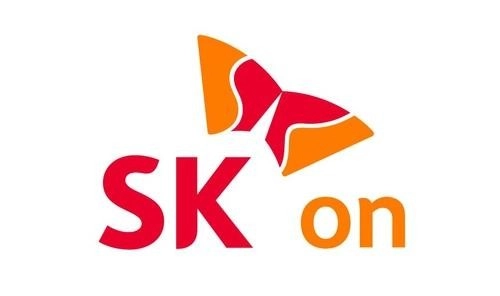
SK attivo
Panoramica
SK On, a subsidiary of South Korea’s SK Innovation, is actively developing solid state battery technologies to support the future of electric vehicles (EVs) and energy storage systems. The company’s approach focuses on two main solid state battery types: polymer-oxide composite batteries and sulfide-based batteries. Through partnerships with research institutions and significant investments in R&D, SK On aims to achieve early commercialization of its solid-state products by the end of this decade.
Cronologia di sviluppo
- 2023: SK On announced that it had successfully developed a new oxide-based solid electrolyte with the highest lithium-ion conductivity in the world. This electrolyte, created in collaboration with Dankook University, achieved an ionic conductivity of 1.7 mS/cm, representing a 70% improvement over existing materials. The new electrolyte uses LLZO (Lithium Lanthanum Zirconium Oxide) as its base material, boosting ion transport and providing excellent chemical stability. This prevents unwanted reactions with cathode materials and helps suppress the formation of dangerous lithium dendrites, enabling the use of lithium metal anodes instead of conventional graphite.
- 2024: SK On is set to complete construction of its new battery research center in Daejeon, South Korea. This facility will become a critical hub for advancing the company’s solid state battery development. The research center will focus on refining the microstructure of solid electrolytes and improving the safety and durability of SK On’s solid state battery designs.
- 2025 – 2026: SK On plans to produce its first prototype solid state batteries. These early models will include both polymer-oxide composite batteries and sulfide-based batteries, each targeting different segments of the EV market. By 2026, SK On aims to complete initial prototype testing and begin scaling up production to prepare for the next development phase.
- 2028: SK On expects to begin commercial production of its first-generation solid state batteries, focusing on EVs and high-end energy storage applications. The commercial products will offer improved energy density, faster charging speeds, and enhanced safety compared to traditional lithium-ion batteries.
- 2029: Full-scale commercialization is expected for both types of solid state batteries, solidifying SK On’s position as a leader in solid-state technology. With its strong R&D capabilities and strategic partnerships, SK On is poised to become one of the top Solid State Battery Companies driving the future of energy storage.

Energia fattoriale
Panoramica
Factorial Energy, an American startup founded in 2020, is quickly making a name for itself in the solid state battery industry. The company’s unique technology, the Factorial Electrolyte System Technology (FEST), integrates semi-solid and solid-state electrolyte materials into existing lithium-ion battery production lines. This approach significantly reduces production costs while enhancing energy density and safety. Factorial Energy’s solid state batteries aim to offer longer driving ranges, improved safety, and compatibility with standard manufacturing processes, making them a strong competitor in the market.
Cronologia di sviluppo
- 2020: Factorial Energy was founded in Woburn, Massachusetts, to commercialize its proprietary FEST technology. The company initially focused on developing a scalable, cost-effective manufacturing process for integrating solid-state electrolytes into lithium-ion battery cells. By utilizing FEST, Factorial aimed to create batteries offering 20-50% more range than traditional lithium-ion batteries without compromising safety or cycle life.
- 2022: Factorial Energy secured $200 million in Series D funding, led by automotive giants Mercedes-Benz and Stellantis. This capital injection accelerated the company’s R&D efforts and enabled the construction of a new solid state battery pilot line. The partnerships with these major automakers also paved the way for Factorial to test its battery technology in real-world vehicle applications.
- 2023: In October, Factorial Energy delivered its first 100 Ah lithium-metal solid-state A-sample cells to automotive partners for testing. This marked a significant milestone in Factorial’s development, as these samples demonstrated the potential of FEST technology to deliver high energy densities and long cycle life. Simultaneously, the company announced progress on its 200 MWh solid state battery assembly line in Methuen, Massachusetts, which, when completed, will be the largest solid state battery production facility in the U.S.
- 2025: Factorial Energy plans to complete the installation of its production line and begin low-volume manufacturing of semi-solid batteries using its FEST technology. This phase will also see the integration of Factorial’s batteries into the first generation of EV prototypes from Mercedes-Benz and Stellantis, enabling extensive testing and validation.
- 2026 – 2028: Factorial will ramp production and transition from semi-solid to excellent state batteries. By 2028, the company expects to achieve full commercialization of its solid-state products, with a focus on high-energy-density cells that offer more excellent safety and performance than current lithium-ion batteries.
- 2030 e oltre: Factorial aims to be a leading supplier of solid state batteries for the global EV market by 2030. With its FEST technology and strong partnerships, Factorial Energy plans to compete with larger Solid State Battery Companies by offering high-quality batteries that meet the stringent safety and performance requirements of the automotive industry.
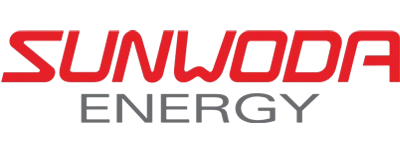
Sunwoda
Panoramica
Sunwoda, a leading Chinese battery manufacturer, is actively developing solid state battery technology to meet the growing demand for high-energy-density batteries in electric vehicles (EVs) and energy storage systems. The company’s solid state battery efforts focus on enhancing energy density, reducing costs, and building partnerships to accelerate development. Sunwoda has outlined a clear roadmap for its solid state batteries, with production capabilities expected to ramp up significantly by 2026.
Cronologia di sviluppo
- 2023: Sunwoda took a significant step by signing a collaborative agreement with the Songshan Lake Materials Laboratory in Dongguan. The partnership aims to build a shared research and development platform dedicated to solid state batteries, enabling both parties to pool their resources and expertise. This agreement marked the beginning of Sunwoda’s structured approach to solid state battery innovation.
- 2024: The company announced that it had completed the development of its first-generation semi-solid batteries, achieving an energy density of 300 Wh/kg. The focus was optimizing the polymer-based electrolyte to ensure safety and performance while keeping costs competitive. The next step was to develop second-generation batteries with even higher energy densities.
- 2025: Sunwoda reached a milestone with its second-generation semi-solid batteries entering pilot production. With an energy density of 400 Wh/kg, these batteries began undergoing vehicle integration tests with automotive partners. The company also announced that it had achieved laboratory validation for its third-generation solid state batteries, which use a polymer-composite electrolyte and offer a targeted energy density of 500 Wh/kg. This marked a major leap in Sunwoda’s technical capabilities and positioned it to compete with other leading Solid State Battery Companies.
- 2026: Sunwoda’s solid state battery production line is expected to reach an annual capacity of 1 GWh. This new facility will focus on third-generation solid state batteries with an increased energy density target of 500 Wh/kg and a cell capacity of 60 Ah. The company also plans to reduce the cost of these batteries to 2 RMB/Wh, making them more accessible to a broader range of EV manufacturers.
- 2028 – 2030: Sunwoda is set to introduce its fourth-generation solid state batteries, featuring a lithium metal anode and a projected energy density of 700 Wh/kg. This development will significantly enhance the driving range and charging speeds of EVs equipped with Sunwoda’s batteries. By 2030, the company aims to be one of the top Solid State Battery Companies in terms of technology and production capacity, supplying solid state batteries to global automotive OEMs.

Gozione Hi-Tech
Panoramica
Gotion Hi-Tech, another leading Chinese battery manufacturer, has been actively developing its own solid state battery technology. The company’s primary focus is on achieving high energy densities and long cycle life using advanced sulfide-based solid electrolytes. Gotion Hi-Tech’s solid-state program, launched in 2017, has seen rapid progress in recent years, culminating in the launch of its “Jinshi” (Golden Stone) solid state battery in 2023.
Cronologia di sviluppo
- 2017: Gotion Hi-Tech officially began its solid state battery development program, focusing on sulfide-based electrolytes. The company’s early research efforts focused on improving the stability and ionic conductivity of sulfide materials to enable safer and higher-capacity batteries.
- 2023: Gotion Hi-Tech unveiled its first full solid state battery, branded as the “Jinshi” battery in May. This battery features an energy density of 350 Wh/kg and 800 Wh/L, which is about 40% higher than conventional ternary lithium-ion batteries. The “Jinshi” battery also boasts a cycle life of over 3,000 cycles, making it highly competitive in terms of both performance and longevity. The launch of this battery marked a significant breakthrough for Gotion Hi-Tech, positioning it as a serious contender among other Solid State Battery Companies.
- 2024: Following the successful launch of the “Jinshi” battery, Gotion Hi-Tech began ramping up its pilot production line. The company focused on refining the battery’s materials, including developing ultra-thin film-coated single-crystal cathodes and a 3D mesoporous silicon anode. These innovations contributed to better energy retention and faster charging capabilities, making the “Jinshi” battery suitable for a broader range of applications, from electric vehicles to grid storage.
- 2027: Gotion Hi-Tech plans to conduct small-scale vehicle integration tests using its “Jinshi” solid state batteries. This phase will allow the company to gather data on battery performance under real-world conditions and make any necessary adjustments before full-scale production. If successful, Gotion Hi-Tech will begin preparing for mass production, targeting 350 Wh/kg energy density as the baseline for its commercial products.
- 2030: The company aims to achieve mass production of its full solid state batteries by 2030. With the industrial chain becoming more mature, Gotion Hi-Tech expects to offer solid state batteries with a consistent energy density of 350 Wh/kg across its entire product lineup. The company’s long-term goal is to increase the energy density to 400 Wh/kg while maintaining a system-level energy density of 280 Wh/kg, enabling vehicles to achieve a range of up to 1,000 kilometers on a single charge.
Conclusione
As solid state battery technology continues to evolve, key players such as CATL, BYD, QuantumScape, and others are pushing the boundaries of what is possible. Each of these Solid State Battery Companies has developed distinct strategies and technologies to tackle the challenges of safety, energy density, and commercialization. The progress made by these companies not only sets the stage for a new era in battery technology but also promises to revolutionize the way energy is stored and utilized across various industries. As mass production and commercial adoption increase, solid state batteries could soon become the standard for high-performance energy solutions, providing safer and more efficient power for everything from electric vehicles to renewable energy systems.

